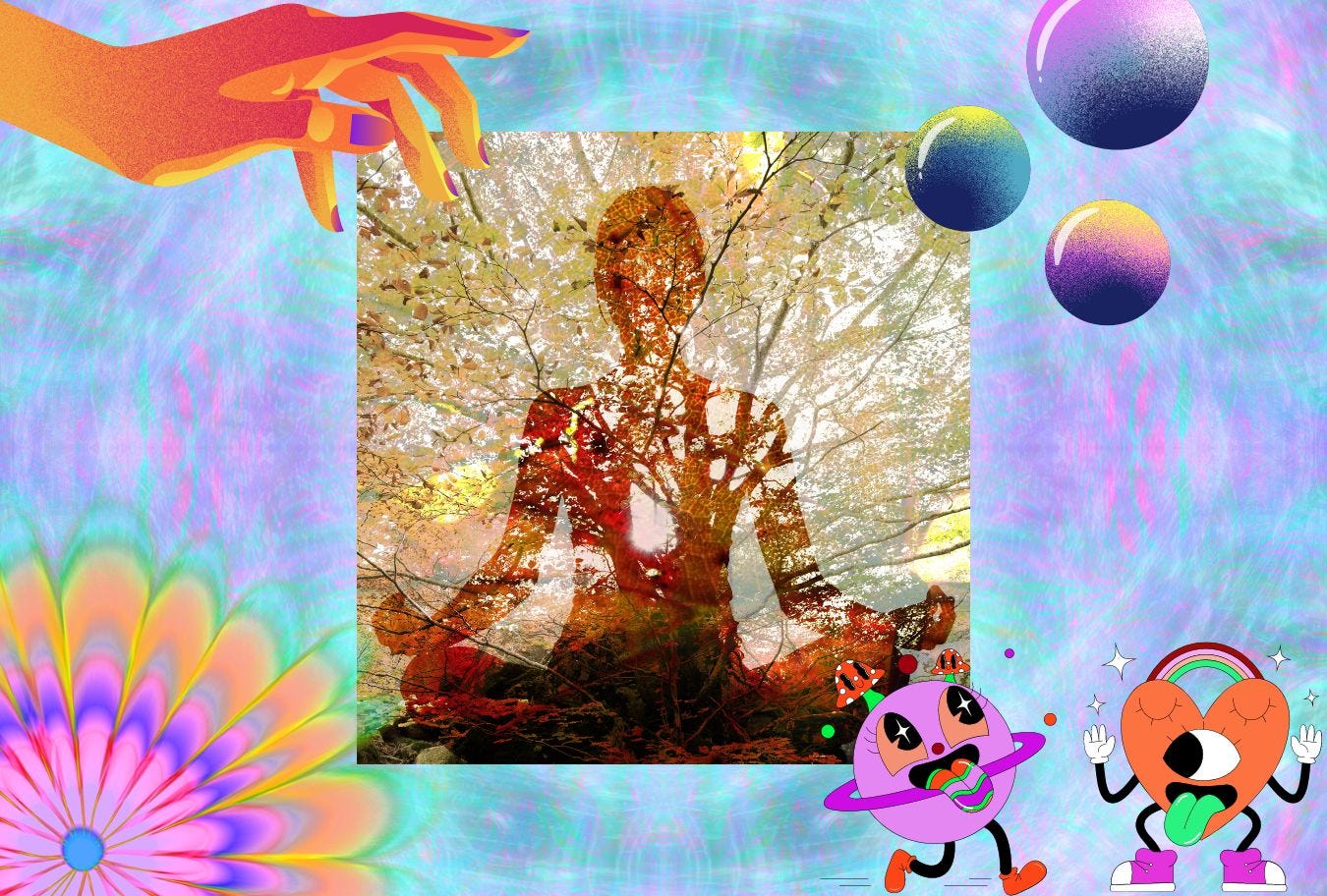We Need a New Word for “Woo-Woo”

The term “woo-woo” hangs heavy over anything remotely smacking of the intangible, the mystical, the unquantifiable. It conjures images of aura readings, sound baths, and dog psychics. But interestingly (she typed, while rolling her eyes), the term is usually reserved exclusively for those intangible, mystical, and unquantifiable practices most often practiced by women.
Cold plunge? Life hack. Positive affirmations? Woo-woo.
Microdosing at work? Genius, bro. Somatic therapies like tapping? Woo-woo AF.
And I’m part of the problem! I’ve been guilty of using the term to couch a wellness practice that’s helped me to skeptics…most often when speaking about it to men.
“Yes, it’s kind of woo-woo but…” I anticipate the skepticism and proactively apologize.
I say, the term “woo-woo” is doing society at large a disservice.
Because hidden beneath the “woo-woo” label, lie holistic methods and systems that could genuinely benefit individuals (*cough* men) seeking more meaning and, yes, wellness in their lives.
The dismissal of these ineffable undertakings can have a chilling effect. Why? Because it discourages people (*cough* men again) from exploring potentially helpful avenues for personal growth simply because they are labeled “woo-woo.”
It also creates a false dichotomy – hard science versus something “other” that’s invariably less valuable or effective.
Instead, we need a new word for “woo-woo.” One that acknowledges the lack of complete scientific understanding of a practice while remaining open to the possibility of its benefit.
Nushama, a psychedelic wellness center in New York City, is at the forefront of moving beyond “woo-woo.” Co-founders Jay Godfrey and Richard Meloff refer to the work they do in ketamine therapy as existing “at the intersection of science and spirituality,” which I like.
RELATED: How to Find a Therapist You Like
Sonia Jhas, a Toronto-based wellness coach, asserts that men’s receptiveness is all in choosing the right mindset.
“All of this stuff is only as ‘woo-woo’ as you want to make it based on your own judgments. It’s about the story you’re telling yourself.”
Looking for a permission slip to try something “woo-woo” for yourself? Measure the practice’s impact on you personally, Jhas says. Breaking an ephemeral or abstract system down into “really tactical, methodical steps” can help you feel empowered, even when you might feel a little silly trying something outside of your comfort zone.
The bottom line? Language matters.
Make sure the language you use around spiritual, mental, and physical wellness practices makes others (*cough* women) comfortable sharing their unique experiences with you. Remind yourself that it’s okay to explore these meaning-making practices without demanding blind faith or empirical data.
By moving away from perjorative labels like “woo-woo,” we can create a more open and nuanced conversation about the range of practices people use to find meaning and improve their lives.
Remember, one person’s “woo-woo” could be another’s path to self-discovery and well-being. Why not be a guy who makes space for open dialogue and exploration, not dismissal and judgment?
I started Style Girlfriend to help guys look, feel, and act their best.
